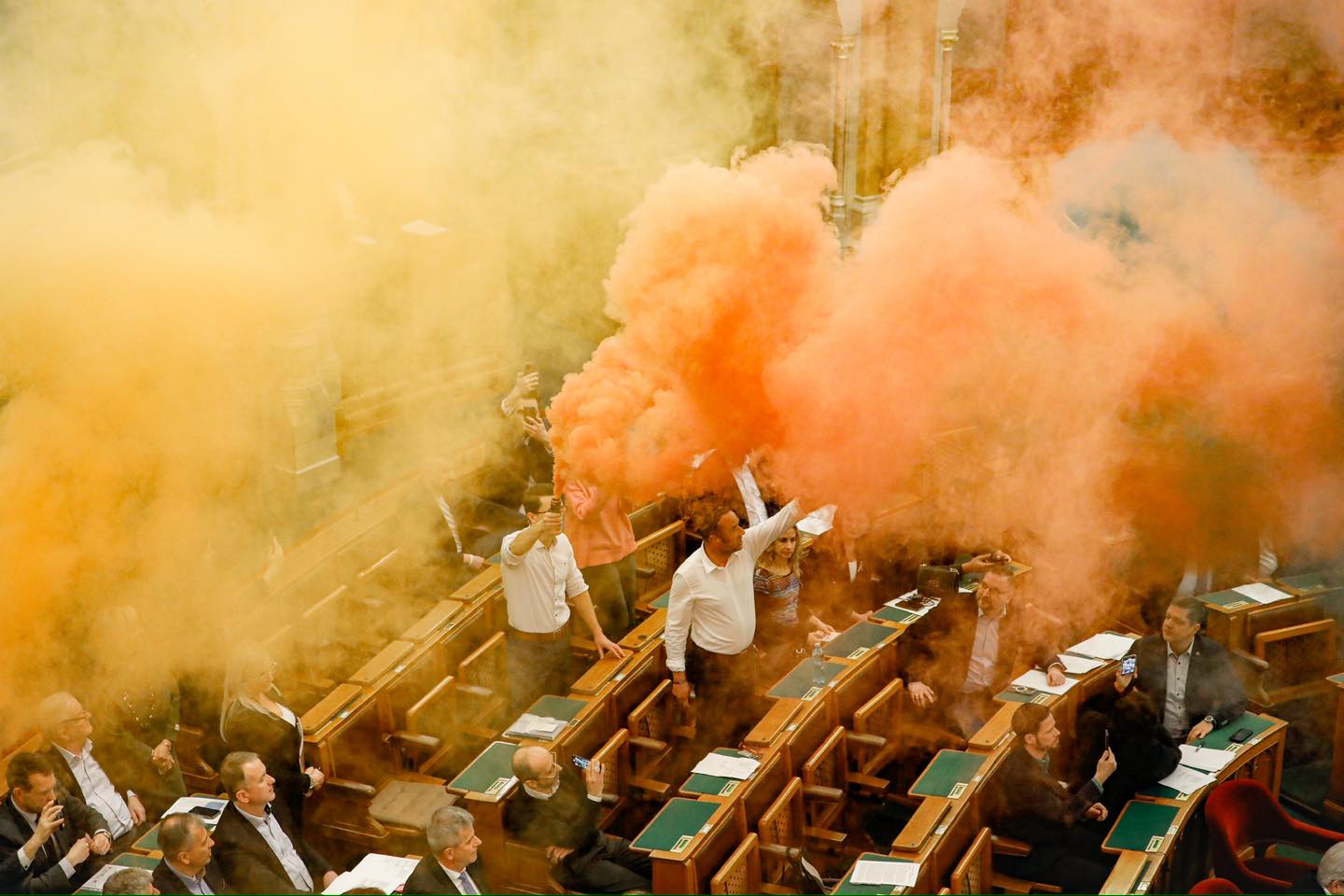
The incident occurred after the parliament voted on the amendment of the assembly law to ban Pride.Continue reading

In a Facebook post, Tamás Sulyok, President of Hungary, addressed the recent rise in aggressive rhetoric in political discourse and the emergence of physical violence, noting that such incidents have occurred both on the streets and even in Parliament. Referring to the upcoming 2026 elections, he emphasized that thirty-six years of experience show that competing parties start preparing for the parliamentary election campaign a year in advance. It seems that this time is no different, he added, reported Hirado.
President Sulyok urged everyone to reflect on the developments happening in neighboring countries, which according to him, serve as a warning. Despite the echo chambers created by social media platforms, which often hinder meaningful dialogue, Sulyok emphasized that we live in the same country, our homeland is one.
In this context, he proposed three key questions for those who wish to express their differing opinions and worldviews within the democratic political framework:
He stressed that
public figures, particularly those seeking public office, shaping opinions, and influencing large audiences, bear a special responsibility.
If they refuse to show respect to their opponents, deny even the slightest goodwill in those with differing opinions, or consider verbal or unlawful physical violence an acceptable tool, they are not just setting an example for their followers, he warned. The president remarked that as the saying goes, “What goes around, comes around,” but in reality, this only fuels the spiral of violence. He emphasized that it is not too late to break this hateful cycle.
The President elaborated on the role of the internet and social media in modern political communication. He pointed out that
the internet and social platforms have suddenly given everyone the ability to shape public opinion. However, this also comes with responsibility.
In the final paragraph of his post, he warned that the same words and phrases that might be a simple jab in the offline world can escalate into virtual lynching in the online space. Virtual lynching can lead not only to psychological trauma but also to physical violence. He said recent political attacks are clear evidence of this danger, referring to the ones against Donald Trump and Robert Fico.
Via Hirado; Featured picture: MTI/Máthé Zoltán